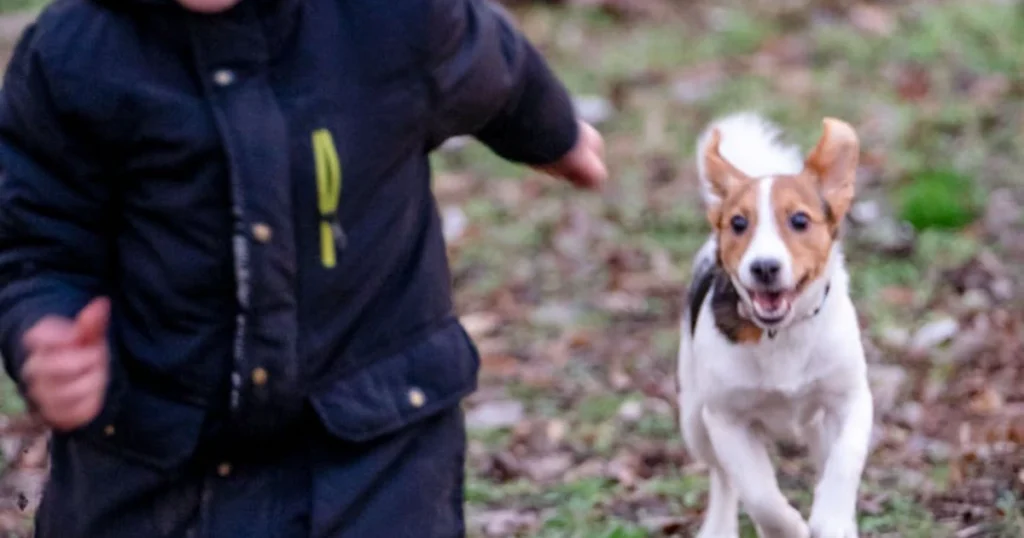Thinking about bringing a puppy into your family? I’ve been there—standing in a shelter, heart pounding, wondering if a dog would really make a difference for my kids. After years of living with dogs (and cleaning up after them!), I can say the science is spot-on: dogs are game-changers for child development. Here’s what I’ve learned, what the research says, and why a wagging tail might be the best thing you ever give your child.

1. Dogs as Everyday Superheroes: Health Guardians in Fur
Let’s start with something wild: dogs can literally save lives. Their sense of smell is off the charts—some can even detect cancer or low blood sugar before any human would notice. Research from the American Journal of Public Health highlights how dogs are being trained to sniff out medical conditions. I’ll never forget the peace of mind I felt knowing our family dog could alert us if something was wrong. It’s like having a furry insurance policy, always on duty.
2. More Play, Less Screen Time: Puppies Get Kids Moving
Here’s the thing: getting kids off the couch is tough. But when we brought home our puppy, suddenly everyone wanted to go play in the backyard. Studies in the Journal of Physical Activity and Health confirm what I saw firsthand—kids with dogs are more active. They run, jump, play fetch, and burn off energy. It’s not just exercise; it’s building lifelong healthy habits, one muddy paw print at a time.
3. Built-In Safety: How Dogs Protect Kids from Hidden Dangers
Some dogs are trained to detect allergens, drugs, or even explosives. I’ve seen service dogs in action, and it’s nothing short of amazing. For families with allergies, a dog’s nose can be a literal lifesaver. It’s like having a security system that wags its tail. Kids feel safer, and honestly, so do parents.
4. Stress Relief and Emotional Support: The Therapeutic Power of Puppies
I’ll admit it—there were days when my kids came home anxious or upset, and our dog was the first to greet them. The British Medical Journal reports that dogs help reduce stress, anxiety, and depression in children. They also boost social skills. I’ve watched my shyest child open up just by talking to our dog. Sometimes, a wagging tail is the best therapy there is.

5. The Real Cost of Puppy Love: Affordability and Value
People ask me all the time: “Can I really afford a dog?” Here’s what I found—the ASPCA estimates the average cost of a medium-sized dog is about $1,100 a year, or roughly $3 a day. For the price of a fancy coffee, you get a loyal friend, endless giggles, and a child who learns what unconditional love looks like. To me, that’s a bargain.
6. Responsibility Boot Camp: Dogs Teach Kids Life Skills
Feeding, walking, grooming—having a dog means routines. And routines mean responsibility. My kids learned to manage their time and put someone else’s needs first. Research shows that kids with pets develop empathy and discipline. It’s not always easy (trust me, those early morning walks are real), but the life lessons stick.
7. Family Glue: How Dogs Strengthen Bonds
Some of our best family memories involve our dog—teaching tricks, laughing at silly antics, or just snuggling on the couch. Studies in Family Process show that pets help families connect. It’s true: a dog turns a house into a home filled with laughter and love.
8. Confidence Boosters: Dogs Help Kids Shine
I’ve watched my kids’ confidence soar as they learned to care for our dog. They felt proud, capable, and important. A study in Pediatric Research found that pet ownership helps kids tackle challenges with grit. When your child walks into school knowing they’re a great dog parent, it shows.
9. Growing Kindness: Dogs Cultivate Empathy and Compassion
Here’s what I noticed: my kids became more nurturing and understanding after caring for our dog. The Journal of Applied Developmental Psychology suggests that kids with pets are more empathetic. They learn to read emotions, respond gently, and care deeply. These are the traits that make for great adults.

10. Pure Joy: Dogs Bring Laughter and Light
There’s nothing like the sound of a child giggling at a puppy’s antics. Our home became a happiness factory, with our dog as the CEO of fun. Research links pet ownership to higher life satisfaction. I’ve seen it—my kids’ days are brighter, and so are mine.
11. Preparing for Life’s Ups and Downs: Building Resilience
Dogs teach kids about love, loss, and everything in between. When our first dog passed away, it was heartbreaking—but it also gave my kids a safe space to learn about grief and healing. Caring for a dog builds emotional intelligence and resilience. They’ll be ready for whatever life throws their way.
12. The Ultimate Gift: A Best Friend for Life
At the end of the day, a puppy is more than just a pet. It’s a teacher, a protector, a confidant, and a best friend. Say yes to a dog, and you’re giving your child a gift that keeps on giving. I still remember the look in my kids’ eyes the first time our puppy curled up beside them—pure, unconditional love.
—

Final Thoughts: Why I’d Do It All Over Again
If you’re on the fence, here’s my honest take: getting a dog changed our family for the better. The science backs it up, but so does my own experience. From superhero sniffs to late-night cuddles, the benefits are real—and they last a lifetime. If you’re ready, visit your local shelter and meet your new best friend. You might just find your home lighting up with love, laughter, and a few muddy paw prints.
—
Expert Insight:
> “Children who grow up with pets develop stronger emotional bonds and social skills. The daily care and companionship foster empathy, responsibility, and resilience.”
> — Dr. Megan Mueller, Associate Professor, Cummings School of Veterinary Medicine at Tufts University (source)